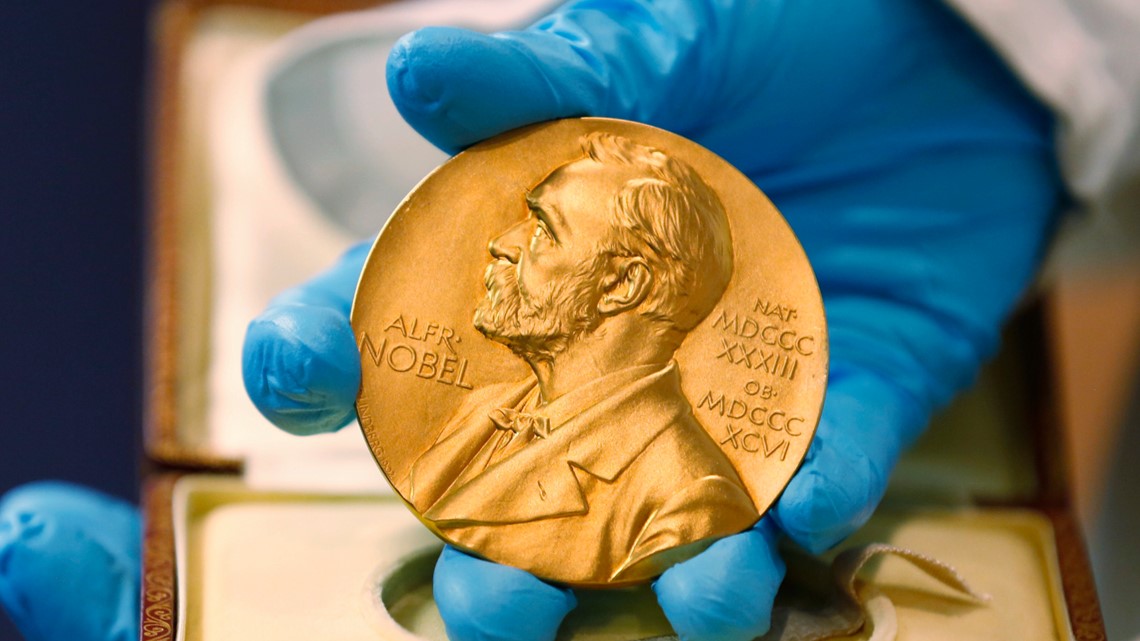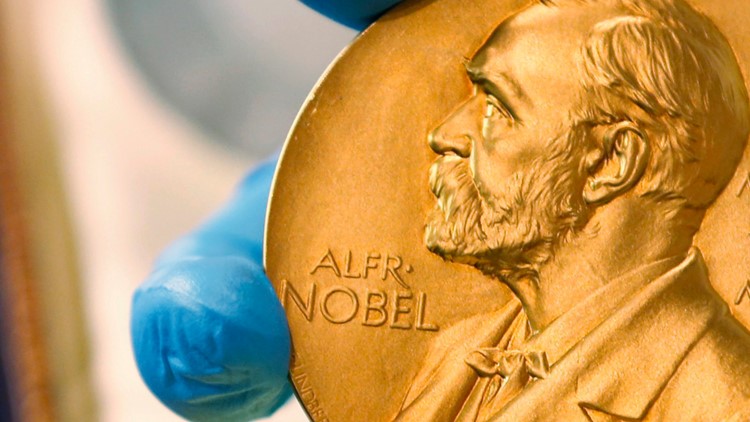STOCKHOLM, Sweden — In a year of the coronavirus pandemic, military conflicts, democratic backsliding and accelerating climate change, Friday's announcement of this year's Nobel Peace Prize is being awaited as a chance to impart hope to a world in turmoil.
From climate activists to political dissidents to international organizations, there is no shortage of causes or candidates for the Norwegian Nobel Committee to consider for what arguably remains the world’s most prestigious prize.
The committee in Oslo maintains absolute secrecy on who it favors as the person or group that has done the most to promote peace, but that has never stopped speculation ahead of the announcement.
Guesses — and bets — this year have focused on Swedish climate activist Greta Thunberg, Russian dissident Alexei Navalny, recovering from a nerve agent attack he blames on Russian President Vladimir Putin, and the World Health Organization for its role in addressing the coronavirus pandemic.
Even U.S. President Donald Trump seems to believe he deserves the prize, though one of the few predictions that pundits feel comfortable making is that he'll be disappointed.
There are 318 candidates — 211 individuals and 107 organizations. Nominations can be made by a select group, including national lawmakers, heads of state and certain international institutions.
The deadline for nominations was Feb. 1, which means that those on the front lines of fighting COVID-19 — which was only declared a pandemic in March — appear unlikely contenders.
Another blow to the WHO's chances comes from its perceived missteps early on in the pandemic, including praising Beijing for transparency at a time when China was hiding information about the virus first detected there.
Every year the Peace Research Institute in Oslo, which is in the same city as the Nobel committee but is independent from it, produces a shortlist of worthy contenders that in 2018 and 2019 included the winners.
This year's list is topped by the Committee to Protect Journalists, a watchdog that advocates for journalists in conflict zones and for press freedoms. The Oslo institute's director, Henrik Urdal, said picking the CPJ would send a strong message during a time of increasing disinformation and as press freedoms are “being challenged across the world.”
Others on Urdal's list include Reporters Without Borders, Navalny and his Anti-Corruption Foundation, as well as humans rights activists in Sudan, Somalia, Libya, Hong Kong and China. One of those is Ilham Tohti, a Uighur economist that China jailed for life in 2014.
Dan Smith, director of the Stockholm International Peace Research Institute, believes that Thunberg stands a good chance for advocating for more urgency in fighting climate change.
"But I tend to think it would better if it went to a number of activists around the world, possibly including Greta Thunberg, but not by putting her on a pedestal by herself," Smith said.
He thinks that an organization, rather than a person, stands a good chance of winning this year.
“Many people feel the world is in rather bad shape. I think that the committee might be inclined to try to give a message of hope and the possibility of change, and one way to do that would be by giving the award to a movement or organization,” Smith said.
Smith suggests the peace prize could go to the United Nations, born to prevent another world war 75 years ago, and its director general Antonio Guterres, or to the U.N.'s World Food Program, which has operations in 85 countries. He says the latter would highlight how food security is “foundational for peace.”
And what about Trump? He has been nominated more than once, including by an anti-immigrant Norwegian lawmaker in 2018 for efforts to bring reconciliation between North and South Korea. As nominations have no expiry date, in theory Trump could still receive the prize this year. The U.S. president has also been suggested for next year's prize for brokering a Middle East peace deal.
Trump said last year he could win “for a lot of things if they gave (the prize) out fairly, which they don’t.”
Urdal, the Oslo institute director, says Trump would not qualify because he has pulled out of numerous international agreements meant to bring peace and stability to the world, including the Paris climate accord, disarmament agreements and the Iran nuclear deal.
“The chance that he is going to get the prize is absolutely zero," Urdal said.
Along with enormous prestige, the prize comes with a 10-milion krona ($1.1 million) cash award and a gold medal to be handed out at a ceremony in Oslo, Norway, on Dec. 10, the anniversary of prize founder Alfred Nobel’s death. This year's ceremony will be scaled down due to the pandemic.





